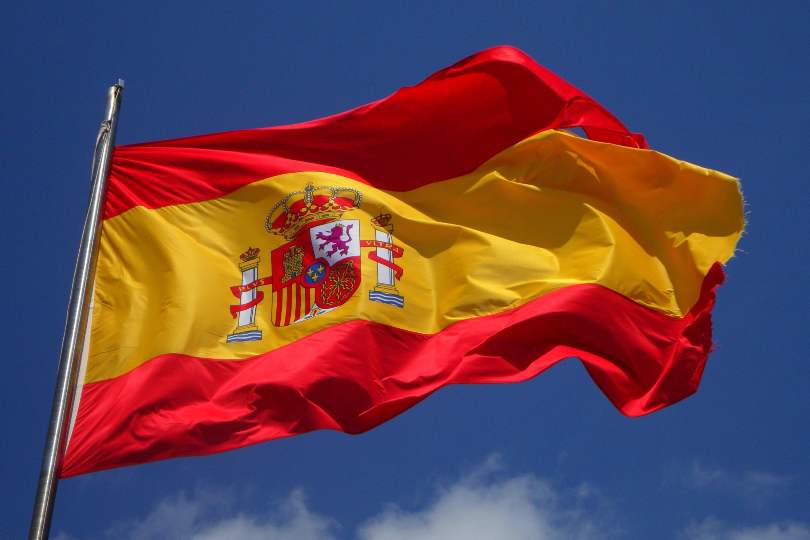Your current scheme provider details are all you need to begin to transfer your UK pension to Canada.
I can then collate the following items, handling all the paperwork for a smooth transfer to your ideal overseas scheme.
Also consider reading: How to transfer a UK pension to New Zealand as an expat
Looking to transfer your UK pension?
Speak to me, Dan Ward, about transferring your UK pension to Canada
Where do I begin in moving my UK pension to Canada?
All you need to begin with are the details of your existing pension plans. Once we have this, I can collate it for you and take care of the requirements outlined below, handling all the paperwork on your behalf.
Checklist for transferring a UK pension to Canada
- Collate existing UK pensions
- Request a CETV (Cash Equivalent Transfer Value)
- Conduct a cost and performance comparison
- Identify the best solution in Canada
- Submit transfer request documentation to the existing and new provider
Advice Requirement
Professional financial advice is always recommended, and under UK rules may be a statutory requirement for such a transfer with some schemes.
Still, knowing that your pension fund could be at significant risk if you do not consult an international financial adviser is essential, whoever your UK pension provider is.
You need to seek appropriate assistance with a UK pension transfer to have insurance should something go wrong and you inadvertently lose your entire pension fund.
A UK adviser usually needs more licenses and an understanding of overseas pension transfers before they can guide you safely.
I am fully conversant with all UK regulations and authorised to transfer your pension to Canada. I have years of experience and expertise helping British expats and other nationals with their financial arrangements worldwide.
Your UK-Registered Pension Scheme
Firstly, ascertain which type of UK pension scheme you have, which may be a company or private arrangement. Not all registered pension schemes are eligible for transfer overseas.
However, all types of UK pensions attract UK tax relief at your marginal income tax rate, meaning your contributions and their investment growth are free of UK income tax and capital gains tax.
The UK tax relief may be applied automatically, but some higher-rate taxpayers must claim this back via a self-assessment tax return in some circumstances.
You will only pay tax when you begin to withdraw your pension benefits, and most allow you to withdraw up to 25% of your pension funds as a tax-free lump sum at this time. You should always withdraw this lump sum before you cease to be a UK tax resident. Otherwise, it will be an unauthorised payment leading to high tax charges.
It is quite usual to have two or more UK pension schemes if you are or were an employee, as it has been obligatory since 2012 for employers to enrol workers in a company pension scheme automatically.
If you are self-employed, have taken time away from work to care for dependents or want to make additional provisions for your retirement, you may also have arranged a private pension with a bank, building society or another provider such as an insurance company.
Private Pension Savings Schemes
Private or personal UK pensions are arranged by an individual rather than via a workplace.
They are always defined contribution schemes, and two of the most popular kinds are stakeholder and self-invested personal pensions.
Stakeholder
Stakeholder pensions are highly accessible plans with low charges and minimal monthly contributions of as little as £20 a month, which you can stop and start at will.
The pension provider invests your contributions into a narrow but safe range of funds.
Every type of stakeholder pension guarantees free transfers, meaning there are no exit penalties should you move your pot out of the scheme into a self-invested personal pension instead.
Self-Invested Personal Pension, SIPP
Although they work similarly to all other pensions, SIPPs allow you to invest in almost anything barring residential property.
Fees may be considerably higher than with a stakeholder to reflect the technical expertise needed to manage these investments. You can often negotiate lower charges if you have a large pension pot to invest.
For UK expats or foreign nationals working in the UK, a SIPP is the ideal UK scheme as it is convertible into an international product allowing the utmost global flexibility for enjoying your pension overseas.
Looking to transfer your UK pension?
Speak to me, Dan Ward, about transferring your UK pension to Canada
Workplace Pension Schemes
Company pensions are defined contribution (DC) or defined benefit (DB) schemes. Some professionals working together, such as solicitors or accountants, may hold group self-invested personal pensions (group SIPPs).
At the same time, for company directors and senior executives, there is often the option of a small self-administered scheme (SSAS).
Defined Benefits Scheme
Most common within the UK public sector, a few private sector firms also occasionally offer defined benefit (DB) schemes. DB plans are also known as ‘final salary’ schemes because they guarantee a regular pension income, a proportion of your former salary, indexed up in line with inflation.
Extra caution and guidance are advisable if you have this scheme, particularly when you have worked in the public sector, when transferring your UK pension to Canada.
It is best to speak with a UK financial adviser first, as your UK pension benefits, such as guaranteed annuity rates, will be exposed to considerable risk and market volatility if you transfer to a defined contribution arrangement.
Defined Contribution Scheme
With a DC, also known as a ´money purchase’ UK pension plan, the provider invests your contributions, and their investment performance determines how much money you will receive from your pension funds in retirement.
Older-style schemes may force you to purchase an annuity out of the pot, reducing the overall size of your pension savings in return for a guaranteed income.
Group SIPP
With a group SIPP, each member, typically professionals who work together, holds an individual UK company pension plan within a combined scheme which shares a single provider. In this way, the collective purchasing power grants access to investments that may not be affordable individually – for example, commercial Real Estate Investment Trusts.
Small Self-Administered Scheme (SSAS)
An SSAS is a specialist workplace pension arrangement available only to senior executives, company directors and relatives of private or family-run companies.
Participation in the scheme is restricted to a maximum of 11 people in whose names the assets are held. Tax relief applies as with all other forms of UK pension.
A key advantage of an SSAS is the access it grants to a more flexible range of investment opportunities, for example, the purchase of commercial properties from which to run the business.
Your pension fund may be held as an individual pot within the plan or pooled with others.
Looking to transfer your UK pension?
Speak to me, Dan Ward, about transferring your UK pension to Canada
UK State Pension
You may be entitled to a UK state pension if you have paid ten or more years of qualifying National Insurance contributions. The government will deliver it to you gross, but it is taxable, and if your overall income exceeds the allowance, you may have to pay income tax.
Check the UK government pension forecasting website to see if you are eligible, whether you can increase payments in return for a higher state pension income, and find your state retirement age.
A UK state pension is not transferable to any other scheme overseas or within the UK.
What are the Benefits of UK Pension Transfers to an Overseas Scheme?
You may not have to transfer your UK pension funds to an overseas pension scheme in Canada. Many providers will simply pay your pension benefits either to a UK bank account or one based in an overseas country for you to withdraw and spend in Canadian dollars.
However, it is generally more convenient to transfer because:
- You can denominate a relevant international currency rather than accruing in GBP and spending in Canadian dollars, thereby reducing exchange rate fluctuations
- A much bigger global fund selection is available
- Ease of management through consolidating all your existing pensions into one
Transferring your UK pension to Canada is occasionally impossible or inadvisable. Yet you can always ask me for help figuring out the tax implications and other pros and cons of your circumstances when considering transferring your UK pension overseas.
Canada Overseas Transfer Options
Two options for transferring UK pensions to Canada are possible: a Canadian QROPS or an international SIPP. Both allow you to take a tax-free lump sum once you are ten years below your UK state retirement age. They are also broadly similar in sharing all the ex-pat-friendly benefits in the list above yet can differ markedly in terms of complexity, cost and time needed for transfer.
So, how do you choose the best way to transfer your UK pension to Canada?
Qualifying Recognised Overseas Pension Scheme, QROPS
Recognised overseas pension schemes are so-called because they meet the HMRC requirements for a UK pension transfer to a Canadian registered retirement savings plan (Canadian RRSP).
Suppose you want to learn more about how a Canada RRSP can qualify for inclusion in the Recognised Overseas Pension Scheme (ROPS). In that case, you can find details of these conditions in the Pensions Tax Manual on the UK government website.
As HMRC no longer approve pensions, you are responsible for ensuring that any retirement savings plan you consider transferring your UK pension to is on its regularly updated list of Canada RRSP ROPS providers online. Please do so to avoid a tax charge of at least 40% of the value of the transfer or, worse, becoming the victim of a scam.
The UK government scrapped the lifetime allowance in the spring budget of 2023. Yet, there is every possibility a Labour administration will make good on their promise to reinstate it should they win the next general election.
If your pension funds are closing in on the lifetime allowance should it be reinstated, consider a Canadian QROPS (also known as a ROPS).
An overseas transfer tax charge of 25% of the pension fund value applies if you choose to reside in a different jurisdiction from where you have based your ROPS, for example, the European Economic Area. These tax charges do not apply to an international SIPP.
International SIPP
Regardless of the lifetime allowance and relative size of your pension funds, an international SIPP is often the way to go. The transfer process can be considerably cheaper and quicker than moving a UK pension to a Canadian retirement savings plan via a ROPS, and there is no tax charge on the transfer.
A tax-free lump sum of up to 25% is available at the pension commencement, provided you are still a UK resident when you withdraw it.
Unlike the Canada RRSP, transferring your pension to an international SIPP means it remains in the UK under the regulatory eye of the Financial Conduct Authority.
Canadian State Pension Income
You might qualify for the state Canadian pension if you have ever worked in Canada and made at least one contribution to the Canada Pension Plan.
Applying for the scheme online or in person at a Service Canada office is necessary, as these Canadian pension benefits are not automatically paid.
Looking to transfer your UK pension?
Speak to me, Dan Ward, about transferring your UK pension to Canada
How to transfer UK pension to Canada FAQs
Do you have to declare UK pension in Canada?
Can I get my pension if I move to Canada?
Please note
A pension is a long-term investment. The fund value may fluctuate and can go down, which would have an impact on the level of pension benefits available. Your pension income could also be affected by the interest rates at the time you take your benefits.
Overseas pension transfers can be complex. Make sure you take financial advice before you transfer your funds.




